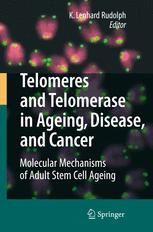

Most ebook files are in PDF format, so you can easily read them using various software such as Foxit Reader or directly on the Google Chrome browser.
Some ebook files are released by publishers in other formats such as .awz, .mobi, .epub, .fb2, etc. You may need to install specific software to read these formats on mobile/PC, such as Calibre.
Please read the tutorial at this link: https://ebookbell.com/faq
We offer FREE conversion to the popular formats you request; however, this may take some time. Therefore, right after payment, please email us, and we will try to provide the service as quickly as possible.
For some exceptional file formats or broken links (if any), please refrain from opening any disputes. Instead, email us first, and we will try to assist within a maximum of 6 hours.
EbookBell Team

4.0
46 reviewsThe understanding of the molecular mechanisms underlying the ageing process is essential to improve quality of life and ‘health span’ in the growing populations of the elderly.
Telomere shortening represents one of the basic aspects of ageing and telomere dysfunction could contribute to the accumulation of DNA damage during ageing. This book summarizes experimental evidence and clinical data indicating that telomere dysfunction influences human ageing, diseases and cancer. In addition, the book describes our current knowledge on checkpoints that limit cellular lifespan (senescence) and survival (apoptosis, crisis) in response to telomere dysfunction.
A special focus of the book is on adult stem cells. There is emerging evidence that adult stem cell ageing impairs organismal fitness and survival and contributes to cancer formation (cancer stem cells). The book summarizes basic mechanisms of adult stem cell ageing. Moreover, the authors describe evidence that telomere dysfunction impairs stem cell function by inducing cell intrinsic checkpoints as well as environmental alterations.
All of these subjects are of great interest for ageing researchers, physicians and students and should provide a rational basis for beginning to identify molecular targets for novel therapies that aim to improve quality of life during ageing.